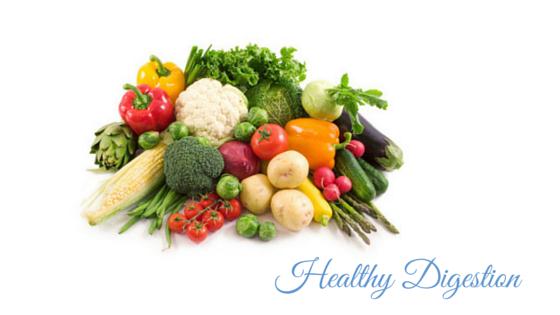Are you eating a healthy diet full of essential vitamins and minerals but are still seeing deficiencies? Are you eating foods that are great at reducing LDL cholesterol or improving Omega 3 ratios, but the bloodwork isn’t improving?
It is highly likely that you are not able to absorb all of that great nutrition!
Bear with me for just a moment as I walk you through basic digestion processes. As we chew our food, enzymes in our saliva start breaking down the carbs. When the food reaches our stomach, stomach acid begins to break down the proteins and there are more enzymes for the carbs. Fats sit around just a bit longer until bile is released from the gall bladder. The bile helps to break down the fats. After the stomach, the food enters the small intestine where the nutrients are absorbed.
That was a short and sweet version, and a very simplistic overview, but it gives you the gist of what happens. There are a couple key things that I want to point out that could lead to problems with absorbing your food and getting the awesome nutrients from it.
Eating too fast and not taking the time to chew does not allow the enzymes to do a good job. Chewing your food increases the surface area and allows the enzymes to get in there and do their work of breaking down the food. Food particles that reach the small intestine that have not been fully broken down will not get absorbed.
Next, you have to have enough stomach acid to break down the proteins. Now here is where you might get a little mad if you are taking acid blockers. Believe it or not, acid reflux is not caused by too much acid. It is caused by too LITTLE stomach acid. By taking acid blockers, you are adding insult to injury. I’ll do another blog about that sometime, but for now I want to explain the one of the roles of stomach acid. Stomach acid is responsible for breaking down the protein we eat into amino acids. The amino acids are what get absorbed in the small intestine. When there isn’t enough stomach acid, the protein molecules are too big and they don’t get absorbed.
The liver is responsible for creating bile and the gallbladder stores it until needed. If you have had your gallbladder removed, you may not be getting enough bile to break down fats. Fats need to be broken down into fatty acids in order to be absorbed.
The last area of digestion I want to touch on is the small intestine. There are a couple of things that can be going on in the small intestine that can prevent absorption of nutrients. Inflammation is usually the most common culprit. You see, in our small intestine we have these little finger-like projections that reach out and grab the small particles to be absorbed. When our gut lining is inflamed, these projections get swallowed up by the inflamed tissue and can’t do their job.
Don’t think your gut is inflamed? Think again!
There are so many things in today’s environment that can cause your gut to become inflamed well before any symptoms show up. Stress, toxic chemicals in our food, processed foods, and fast foods are a few examples. Our bodies are bombarded on a daily basis and our digestive system takes the brunt of it.
If you suspect that one or all of these common hidden problems may be interfering with your ability to get all of the benefits of the healthy food you are eating, there are some things you can do.
1. Chew your food A LOT. Aim for 20-25 chews for each bite.
2. Try taking some Betaine/HCl prior to each meal, especially those higher in protein. Start with 1-2 capsules.
3. Digestive enzymes supplements can be very supportive as we age. Look for one that includes enzymes for carbs, proteins, and fats.
4. If you have had your gallbladder removed, take ox bile prior to each meal especially those higher in fat. (Don’t be afraid to eat fat! You need it!)
5. Reduce the inflammation in your gut by removing toxic foods from your diet and by adding healing foods such as glutamine, apple cider vinegar, or aloe vera juice. I plan on doing a whole series on healing gut inflammation, but these foods are a great way to get started.
Whenever you want to start new habits or try a new healing plan, take small steps and keep it simple. Do just one thing at a time and add things as you go. You may need to take only one of these action steps to improve absorption or you may need to combine a few of them. Each person’s body is different and has different needs. Use what works best for you and save the rest for later.

